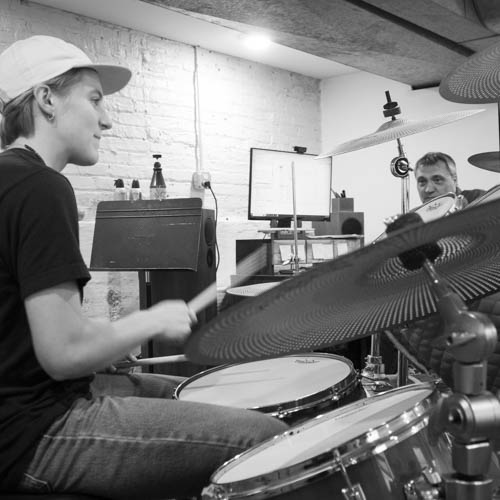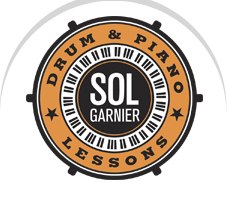After those two concepts that are coordination and speed, you get nimbleness. That’s the ability to navigate the drum kit presented in front of you, going from a tom to a crash cymbal to a hi hat in a swift and elegant movement. It requires a lot of practice and dedication and if you do it badly, you can sustain an injury. Nimbleness is a great concept to work on, it will make you sweat. The drums is a physical instrument.
Next up in the list is time keeping. Oh, that’s a big one. Actually, that’s one of the top 3. If you can keep time, you can’t call yourself a drummer: it’s that simple, that cut throat. I’ve got a ton of exercises to develop good time while having fun. But, to tell you how essential it is, I used to have a small electronic metronome hanging on my neck in order to develop perfect time, or so I thought. That persistent artifact would play all day long, and drive every body crazy, it was great!
You also need to study reading. That’s where the money is. If you know how to read, you have a better chance of making a living. I learnt that skill both at the Conservatory in France and at Berklee College of Music in Boston. I ate a lot of rhythmic reading. It is a must because if you want to become a studio musician, you have to be able to read the proverbial fly dung on a piece of paper.
There are many more concepts to cover but this is long enough. If you’re interested, I can only recommend you contact a drum teacher and get into it (I know an excellent one). Happy drumming!

